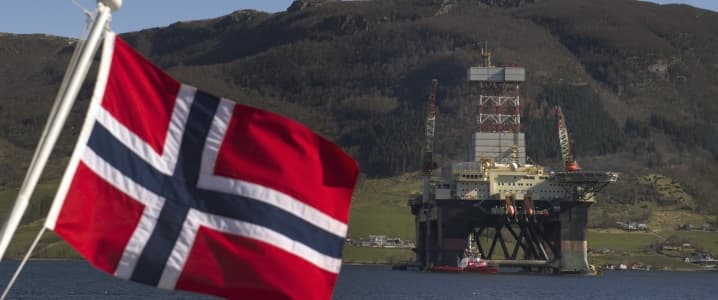Carbon capture and storage or reuse is gaining traction amid intensifying efforts to curb the effect of climate change on the planet. Now, a Swiss-Norwegian team of researchers has gone a bold step further: they are proposing using CO2 as fuel in the production of methanol, to be used as an energy source instead of fossil fuel derivatives.
In a paper published in the Proceedings of the National Academy of Sciences of the United States, the team details their idea as follows:
“We propose a combination of largely existing technologies to use solar energy to recycle atmospheric CO2 into a liquid fuel. Our concept is clusters of marine-based floating islands, on which photovoltaic cells convert sunlight into electrical energy to produce H2 and to extract CO2 from seawater, where it is in equilibrium with the atmosphere. These gases are then reacted to form the energy carrier methanol, which is conveniently shipped to the end consumer.”
Interestingly, this is the second recent floating island idea. In April, UN-Habitat showcased a project for a sustainable system of linked floating islands that could sustain communities of up to 300 people each. Yet in the case of the floating energy production facilities, the idea came from the Norwegian government.
Speaking to Newsweek, one of the authors of the paper, Andreas Borgschulte, said the Norwegian government had asked the scientists to find a way to move fish farms further into the open sea. There, however, these farms would need to produce their own energy, hence the floating “power plants.” Related: Battery Breakthrough Solves Major Electric Car Problem
According to the team’s calculations, a system of 70 such floating islands would cover about one square kilometer in a suitable location, which means no threat of too high waves or hurricanes, and water depths of no more than 600 meters, so the islands can be moored safely. Some 3.2 million such islands, the researchers said, would produce enough clean energy to not just offset but exceed the current level of fossil fuel-related carbon emissions.
As is usual with this sort of optimistic breakthroughs, the floating “power plants” are far from a done deal, however. Acknowledging that the main problem of renewable energy is making it cost-competitive with fossil fuels at scale, Borgschulte said there is just one major challenge for the project: extracting the CO2 from the seawater.
"This process is the only one of the total system [that] has not yet been fully developed. All others exist already on an industrial scale," he told Newsweek.
There is certainly strong motivation to develop such a process: the International Energy Agency warned in its latest Global Energy and CO2 Status Report that last year emissions hit a record despite the drive to a more sustainable energy future. These reached 33.1 gigatons last year, breaking their previous record even though the annual increase was relatively modest, at 1.7 percent. At the same time, renewable power additions stalled, highlighting the problem of competitiveness at scale. In this context, the Swiss and Norwegian researchers’ project holds a lot of promise if the carbon extraction process is developed soon enough.
By Irina Slav for Oilprice.com
More Top Reads From Oilprice.com:
- World Bank Cuts Russia 2019 Growth Outlook On Oil Cuts
- Oilfield Services Feel The Pain As Crude Prices Drop
- OPEC+ Has Only One Choice As Oil Prices Slide


















